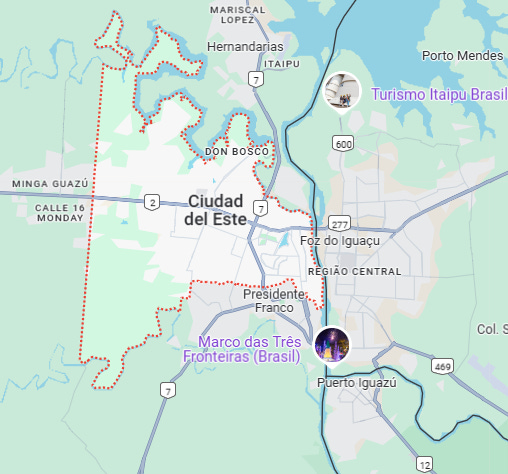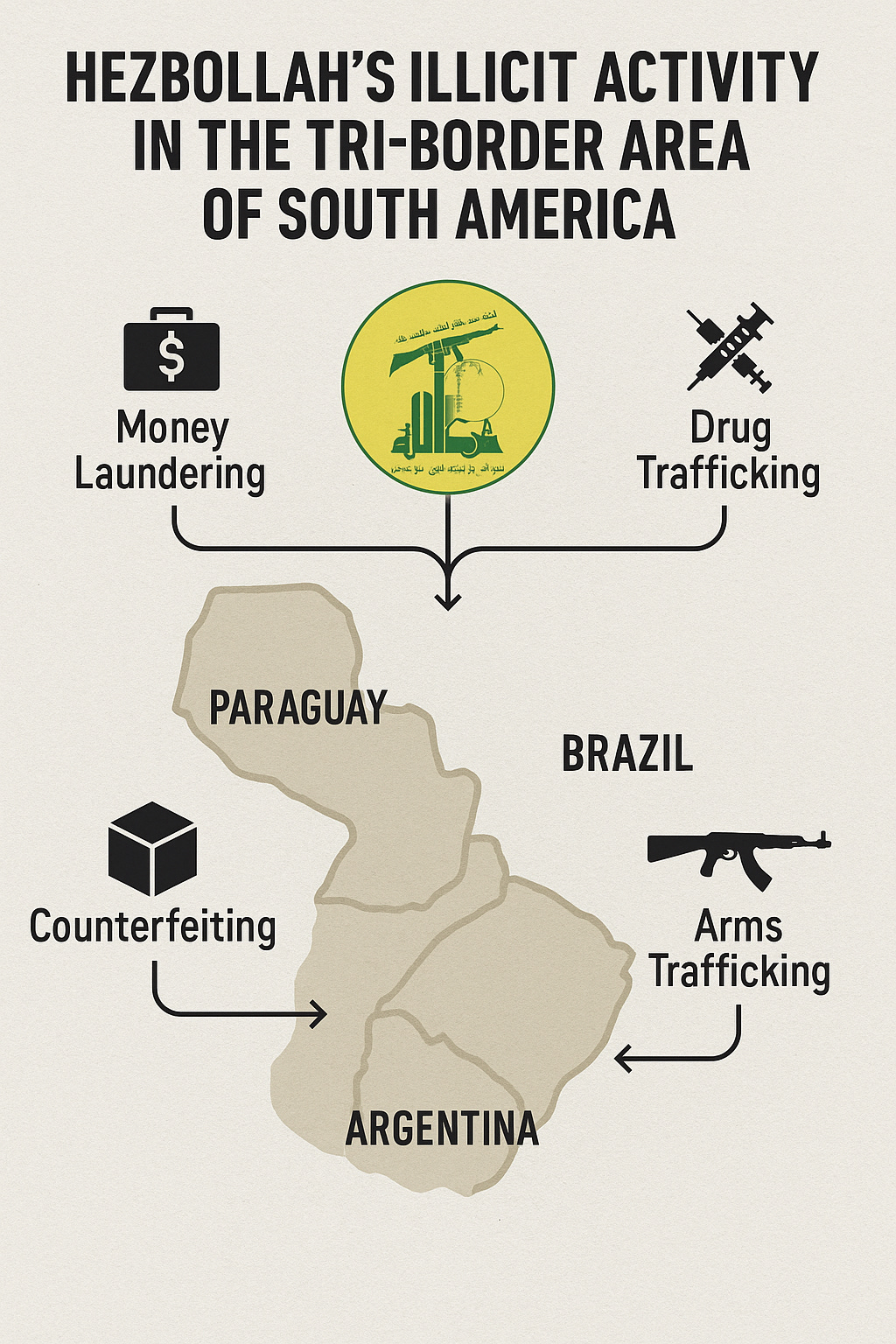Paraguay Cracks Down on Iran-Backed Terror Groups
On April 23, Paraguay designated the IRGC as a terrorist group and broadened its listings to include all of Hezbollah and Hamas, reflecting growing concern over their long-standing presence in the TBA
Paraguay recently made the move to officially designate Iran’s Islamic Revolutionary Guard Corps (IRGC) as a terrorist organization. Furthermore, Paraguay also expanded its 2019 designations of the armed wings of Hezbollah and Hamas to include the full organizations. These steps were praised by the U.S. State Department and they mark a shift in how Asunción addresses foreign terrorist presence in its territory. To fully understand the significance of these designations, here is a breakdown of the history of Iran-backed terror groups operating in the Tri-Border Area (TBA) and their activities in Paraguay.
The History of Iranian-Backed Terror Activity in the Tri-Border Area
At the intersection of Paraguay, Brazil, and Argentina lies the Tri-Border Area (TBA)—a region long recognized by intelligence and law enforcement as a focal point for criminal and terrorist activity. Since the late 1990s, reports from U.S. authorities and researchers have described the TBA as a base of operations for Islamist groups including Hezbollah, Hamas, and al-Qaeda.
Ciudad del Este, Paraguay’s second-largest city and a central hub in the TBA, plays a major role in this activity. Originally envisioned as a free-trade and tourism zone, it has evolved into a major black-market export point. Its economy is dominated by large Lebanese and Chinese communities, with criminal enterprises flourishing in parallel with legitimate trade. The city has also been linked to Islamic extremists, with several suspected terrorists previously residing there and utilizing mosques as meeting points or fronts.

Hezbollah: The Principal Actor in the Region
Hezbollah has maintained an entrenched presence in the TBA since the mid-1980s. U.S. intelligence once described the area as the group’s most important base outside Lebanon. The group has allegedly used Paraguayan territory to plan operations, raise funds, and launder money through cover businesses. While Paraguayan officials initially downplayed Hezbollah’s presence, the country designated the group a terrorist organization in 2019.
Two of the most devastating terrorist attacks in South America—the 1992 bombing of the Israeli embassy and the 1994 AMIA Jewish center bombing in Buenos Aires—have roots in the TBA. Funding, explosives, and operatives reportedly passed through Ciudad del Este, and senior figures like Imad Mughniyah and Assad Ahmad Barakat resided there during the planning phases. Barakat, in particular, played a key role in fundraising, operating businesses through which millions were funneled to Hezbollah. Although arrested multiple times, his network remains active.
Hezbollah is believed to generate hundreds of millions annually in the region, largely through drug and arms trafficking, and illicit financial transfers. Some of these funds are believed to have moved through Paraguayan financial institutions. The group's reach even extended into Paraguayan politics, with a former ambassador to Lebanon allegedly using his role to strengthen Hezbollah’s local connections.
Hamas Activity in the Tri-Border Area
While Hezbollah dominates headlines, Hamas has also made its mark in Paraguay. The Palestinian terror group has used the TBA as a support base, operating sleeper cells and engaging in fundraising. In 2019, Paraguay formally designated Hamas as a terrorist organization. According to the Library of Congress, between 1999 and 2001, over $50 million was reportedly funneled to Hamas and Hezbollah from local Arab donors through Paraguayan financial institutions. Authorities have linked software piracy in Ciudad del Este to Hamas fundraising efforts, and several Hamas-affiliated individuals have been arrested in the region. These include suspects in a 1999 foiled plot—allegedly coordinated with Hezbollah and al-Qaeda—to attack Jewish targets, and a known Hamas explosives expert apprehended in 2000 with ties to plans targeting U.S. and Israeli embassies.
Turning a Corner
Paraguay's recent designations reflect a broader awareness of the long-standing threat posed by Iran-backed terror groups operating within its borders. With international backing, especially from the United States, Paraguay appears poised to take a firmer role in disrupting extremist financing and logistics in the TBA—an area long seen as a blind spot in the global fight against terrorism.




